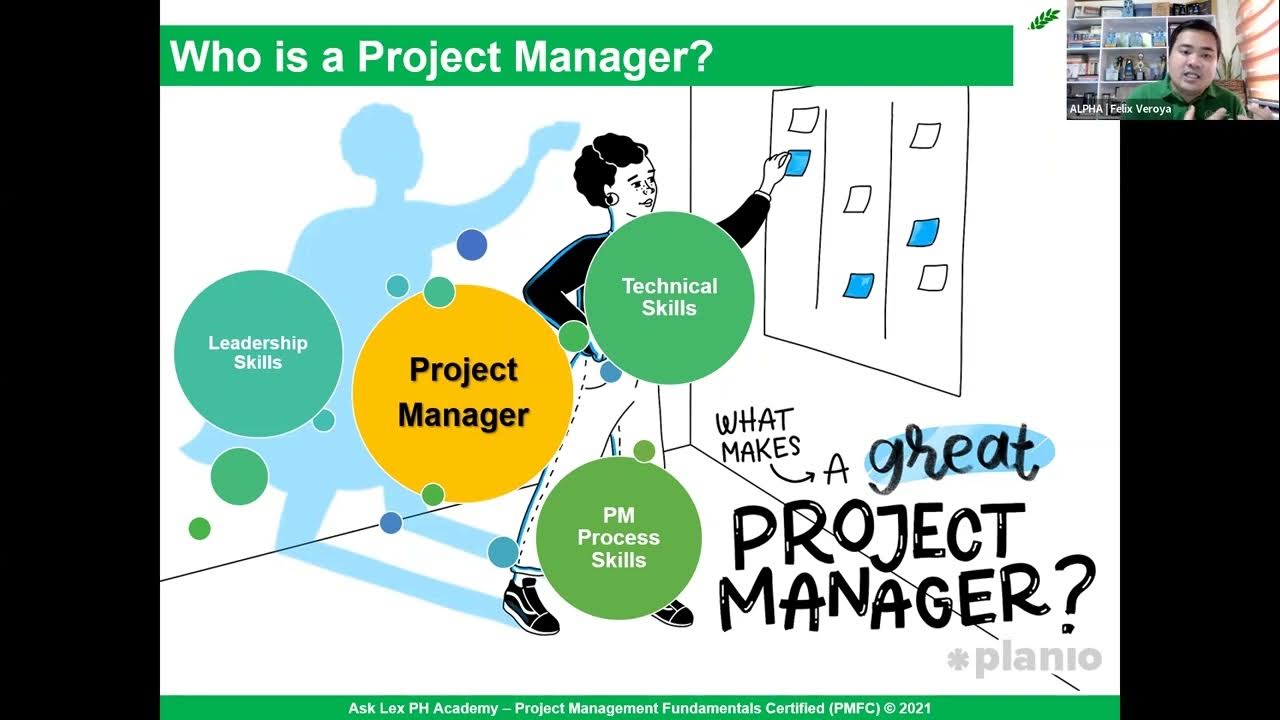How to Negotiate: The Basics of Negotiation
Summary
TLDRThis video discusses the essential negotiation skills for project managers, emphasizing its growing importance in the profession. It introduces a five-step negotiation process: preparation, opening, bargaining, closing, and follow-up. Viewers learn how to prepare thoroughly, make a strong first impression, build rapport, and ensure both parties achieve a satisfying outcome. The video highlights key tactics, such as defining ideal outcomes and recognizing authority, ensuring successful negotiations in project management. By following this structured approach, project managers can confidently navigate complex negotiations and achieve successful results.
Takeaways
- 😀 Project managers have always needed negotiation skills, and it's increasingly recognized by professional bodies like PMI.
- 💼 PMI now includes negotiation as part of the PMP exam, starting in January 2021, under domain one (People) and task 8 (Negotiating Project Agreements).
- 🔄 Negotiation is a process aimed at finding an agreement that satisfies all parties, ensuring integrity in the process.
- 📝 Proper preparation is key to a successful negotiation, including defining goals, outcomes, and knowing your BATNA (Best Alternative to a Negotiated Agreement).
- 🔍 Research is crucial—project managers should know the context, players, history, and facts surrounding the negotiation to be well-prepared.
- 🤝 Building rapport and making a strong first impression at the opening of negotiations are essential for success.
- 📜 Defining the scope and sequence of the negotiation early on, including setting ground rules and administrative details, ensures smooth proceedings.
- ⚖️ The bargaining phase includes multiple offers and counteroffers, with the goal of reaching a mutually acceptable outcome through concessions and agreements.
- ✅ Closing involves summarizing agreements, ensuring that all issues have been addressed, and making the formal offer for final acceptance.
- 📝 Follow-up is critical—both parties must adhere to agreed-upon actions, document the deal, and maintain professionalism through post-negotiation courtesy.
Q & A
Why is negotiation an important skill for project managers?
-Negotiation is an important skill for project managers because they need to negotiate with various stakeholders such as sponsors, bosses, clients, suppliers, contractors, and consultants. It is a crucial part of their role and is increasingly recognized by important bodies like the PMI.
When did the PMI decide to include negotiation in the PMP examination content?
-The PMI decided to include negotiation explicitly within its examination content outline for the PMP qualification starting from January 2021.
What are the two important parts of the definition of negotiation mentioned in the script?
-The two important parts of the definition of negotiation are that it is a process and that it involves searching for a solution that will satisfy all parties involved.
What are the five components of the negotiation process for project managers?
-The five components of the negotiation process are preparation, opening the negotiation, bargaining, closing the negotiation, and following up on the negotiation.
Why is preparation crucial before entering into a negotiation?
-Preparation is crucial because it helps to define the scope of the agreement, set goals and objectives, and determine the ideal, acceptable, and minimum outcomes. It also involves researching the context and players, and planning the negotiating strategy and tactics.
What are the three levels of outcomes one should consider before a negotiation?
-The three levels of outcomes are the ideal outcome, the acceptable outcome, and the bottom line. The ideal outcome is the best reasonable result one could achieve, the acceptable outcome is a satisfactory result, and the bottom line is the minimum outcome one is willing to accept.
What does BATNA stand for and why is it important in negotiations?
-BATNA stands for 'Best Alternative To a Negotiated Agreement.' It is important because it helps define one's bottom line and provides a fallback option if the negotiation fails.
What are the seven things that must be covered at the opening of a negotiation?
-The seven things to cover at the opening of a negotiation include making a good first impression, building rapport, checking the authority of the other party, agreeing on the basis for the meeting, setting admin and ground rules, discussing each party's ideal outcome, and potentially leading with the seller's outcome.
What are the phases that the bargaining stage of negotiation goes through?
-The bargaining stage goes through phases where parties put forward positions, exchange ideas, make offers and counteroffers, request and offer concessions, and sometimes get stuck or find ways to get unstuck.
How do you know when to close a negotiation?
-You know it's time to close a negotiation when both parties feel close to an agreement, most matters have been discussed, and there are agreements around all the details.
What are the two things you should discuss after closing a deal in a negotiation?
-After closing a deal, the two things to discuss are the logistics of what comes next and pleasantries to maintain good relationships.
Outlines

Dieser Bereich ist nur für Premium-Benutzer verfügbar. Bitte führen Sie ein Upgrade durch, um auf diesen Abschnitt zuzugreifen.
Upgrade durchführenMindmap

Dieser Bereich ist nur für Premium-Benutzer verfügbar. Bitte führen Sie ein Upgrade durch, um auf diesen Abschnitt zuzugreifen.
Upgrade durchführenKeywords

Dieser Bereich ist nur für Premium-Benutzer verfügbar. Bitte führen Sie ein Upgrade durch, um auf diesen Abschnitt zuzugreifen.
Upgrade durchführenHighlights

Dieser Bereich ist nur für Premium-Benutzer verfügbar. Bitte führen Sie ein Upgrade durch, um auf diesen Abschnitt zuzugreifen.
Upgrade durchführenTranscripts

Dieser Bereich ist nur für Premium-Benutzer verfügbar. Bitte führen Sie ein Upgrade durch, um auf diesen Abschnitt zuzugreifen.
Upgrade durchführenWeitere ähnliche Videos ansehen

Negotiation in Project Management part 1

Business Negotiation Strategies | International Management | From A Business Professor

Who is a project manager_rev1

Bad News for PMPs—The Future Looks Uncertain, Here’s How to Stay Employed

Top 3 Business Skills for Project Managers

Conflict Resolution Training: How To Manage Team Conflict In Under 6 Minutes!
5.0 / 5 (0 votes)
